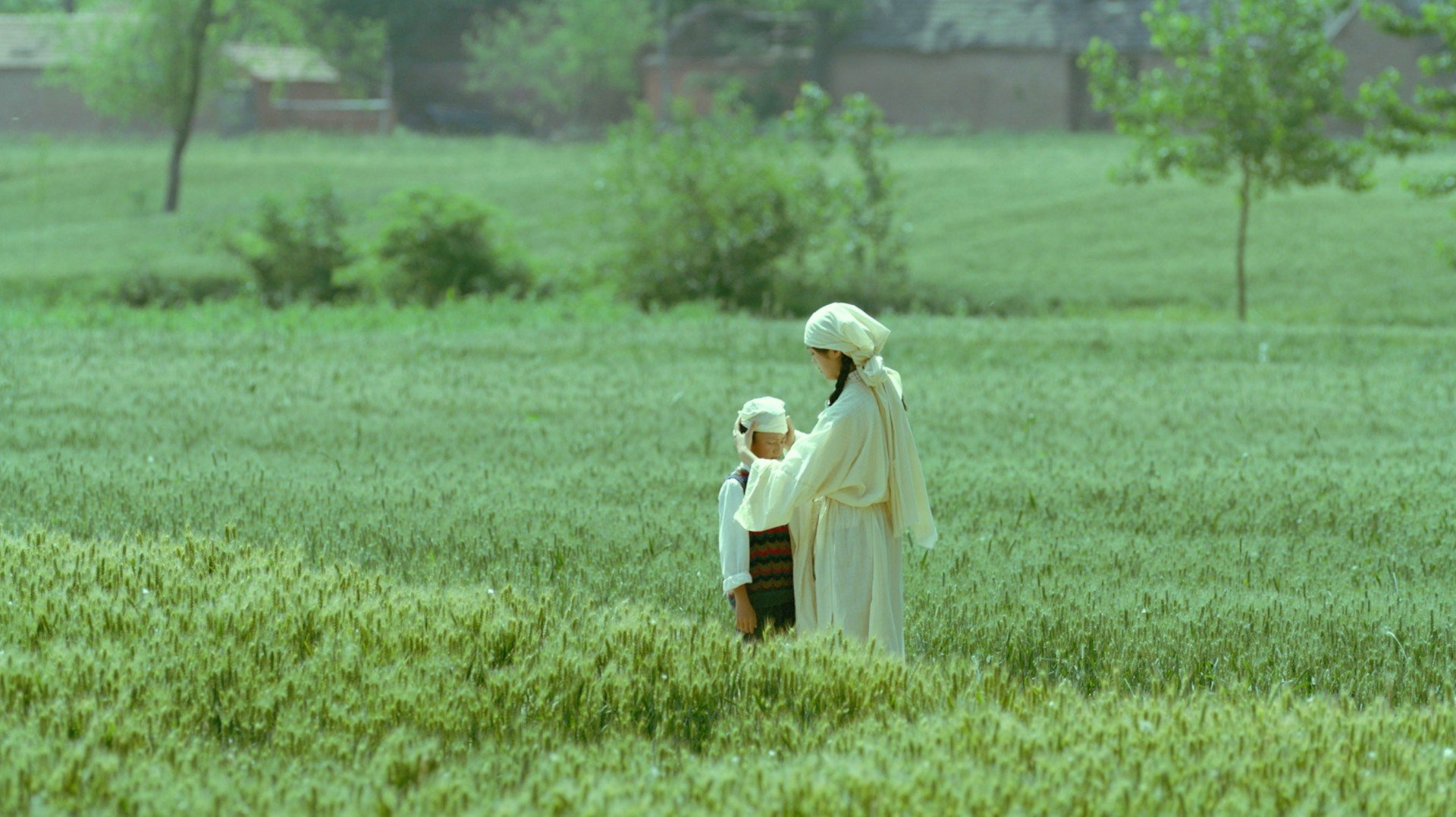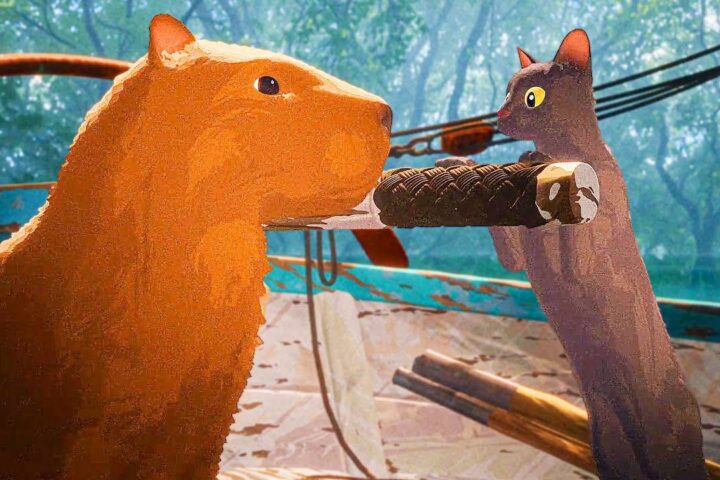Li Chuang (Wang Shang), the 10-year-old protagonist of Living the Land, mentions in an opening narration that the events of the film take place in 1991. Without this explicit note, it would be easy to think that writer-director Huo Meng’s second feature was set decades earlier, as the rural Chinese villages where Chuang and members of his extended family live look so primitive they seem entirely untouched not merely by the domestic upheavals of the communist civil war but by the 20th century itself. Images depicting the fabric of community life show people reaping wheat with hand scythes or using fire pits in village squares for blacksmithing. When Chuang and others travel between villages, they do so via cart and horse. By the time a gas-powered vehicle appears near the film’s end, it feels like a rupture in time.
The only real evidence that the film takes place in the wake of the Maoist revolution, in fact, are elders’ grim allusions to the executed townsfolk whose bones are still being recovered from unmarked graves. Indeed, we first meet Chuang as he watches the scattered bones of his grandfather unearthed from a hole that also contains the bullets used to kill him. Elsewhere, adults speak in conversations that trail off pointedly about friends and loved ones who found themselves on the wrong side of the Great Leap Forward, which appears to have affected the region solely in terms of body count with no corresponding industrialization or development.
The political insinuations are obvious, but Huo doesn’t solely dwell on the dark undercurrents of the area’s history. He also captures the everyday rhythms of rural communities, using panoramic shots of hamlets to capture the free movement of people among each other’s homes and the ways in which they can be generous or withholding with one another. A notable sequence depicting a long public funeral procession is emblematic of how Huo patiently observes the various traditions that villagers maintain while also humorously noting when some adhere to these customs more out of obligation than genuine commitment.
The modern world exists only on the periphery of this microcosm, rarely seen so much as felt in the slow dwindling of denizens who leave their farmlands in search of better lives in cities, rarely to return. Chuang’s own parents set off on this path, leaving him in the care of other relatives, among whom he becomes a quiet observer of the personal and social tensions around him.
Chuang spends the most time with an aunt and uncle who have a mentally disabled son, Jihua (Zhou Haotian), who’s treated alternately with sympathy and contempt. In one of the film’s most memorable scenes, a woman comes to the home to insult Jihua for damaging some of her wheat harvest, only to be horrified into defending him when his father begins to beat him out of pent-up frustration. But the film is also witness to moments of gentle camaraderie between people, as when everyone gathering wheat in the fields pauses to enjoy popsicles, children and elders alike delighting in the moment of rest. Huo’s patient, nonjudgmental study of these people tacitly reveals the ways, healthy and otherwise, in which they’ve compartmentalized and continue to process the pain of everything from hard labor to political oppression.
Eventually, Chuang begins to get a sense of the contemporary China creeping belatedly into the countryside. A young couple’s wedding ends with a bus arriving to take them on a honeymoon to a city, and prospectors come to assay the farmland for possible oil beneath their wheat fields. While some villagers dream of striking it rich, others look on with dismay as holes begin to be dug, wondering aloud what they will do for food if their farmland is torn up for nothing.
As it was long before Chuang was born, “progress” comes to the region mostly to extract people and resources, and a film that began with gorgeously colorful images of verdant fields and purple-twilight skies ends with a slightly desaturated pall of uncertainty as an ever-shrinking population faces yet another fork in the road. But if Living the Land doesn’t feel overly hopeful for the residents of China’s rural communities, it nonetheless suggests that in some form or fashion its people will continue to endure as they have for so long.
Since 2001, we've brought you uncompromising, candid takes on the world of film, music, television, video games, theater, and more. Independently owned and operated publications like Slant have been hit hard in recent years, but we’re committed to keeping our content free and accessible—meaning no paywalls or fees.
If you like what we do, please consider subscribing to our Patreon or making a donation.



